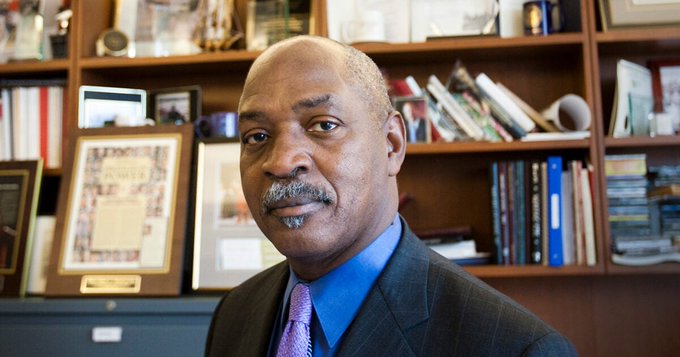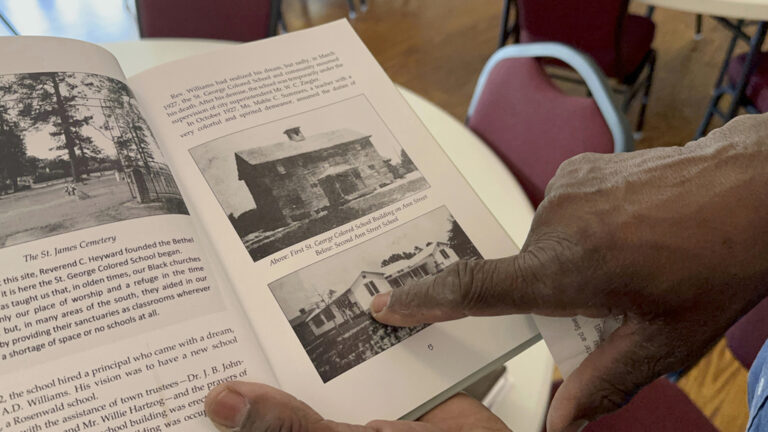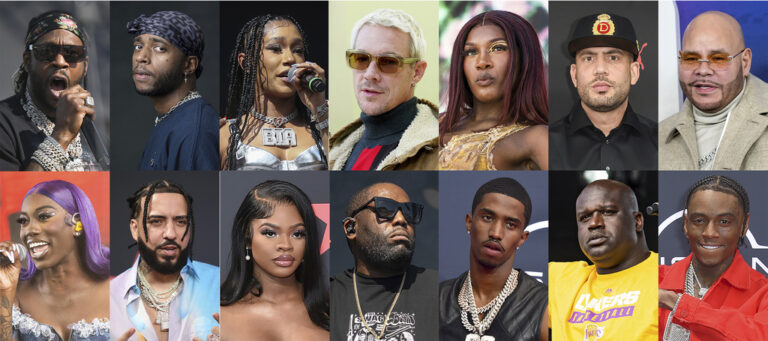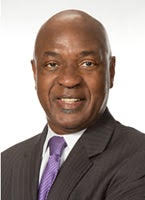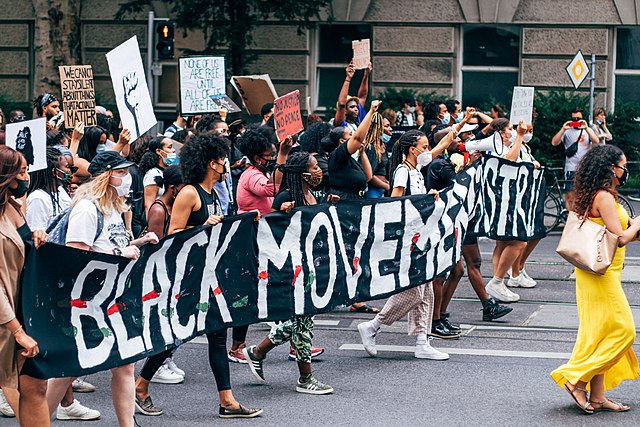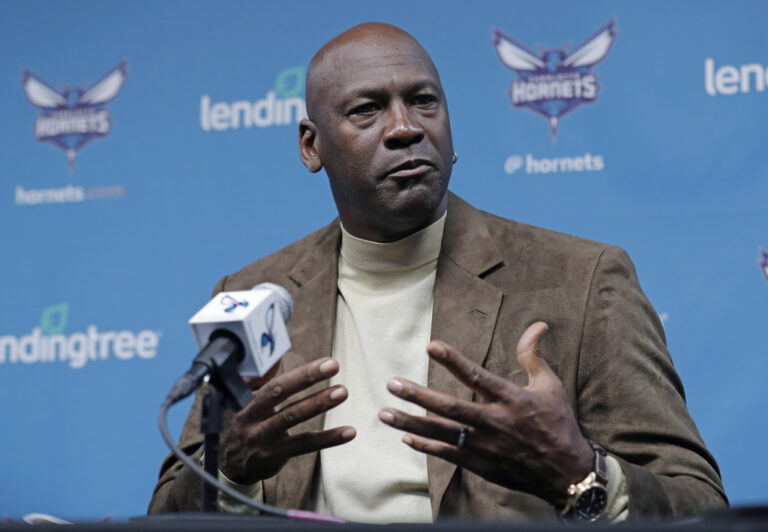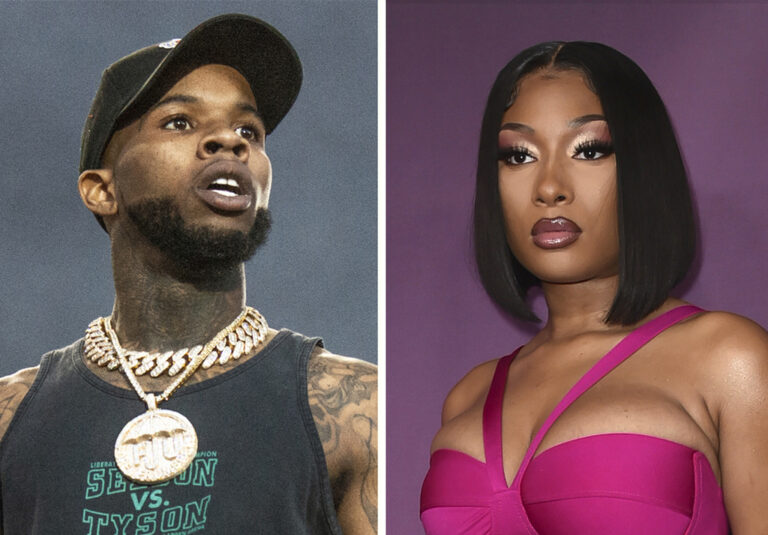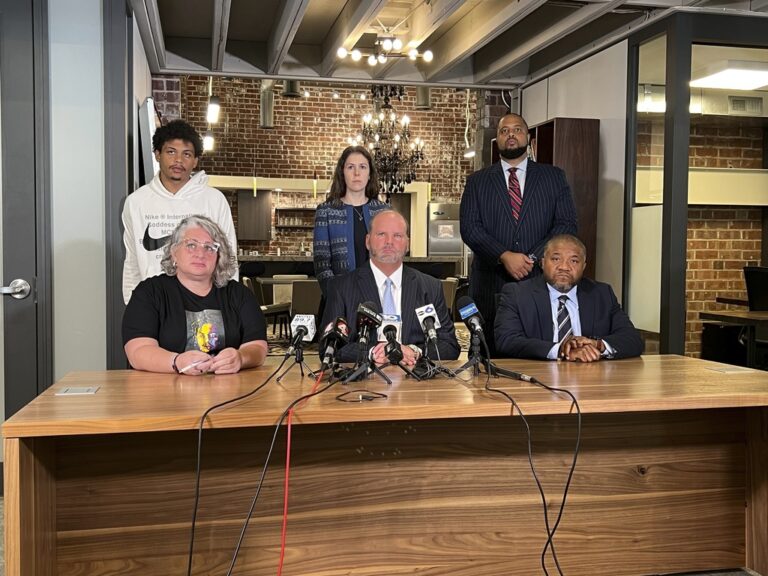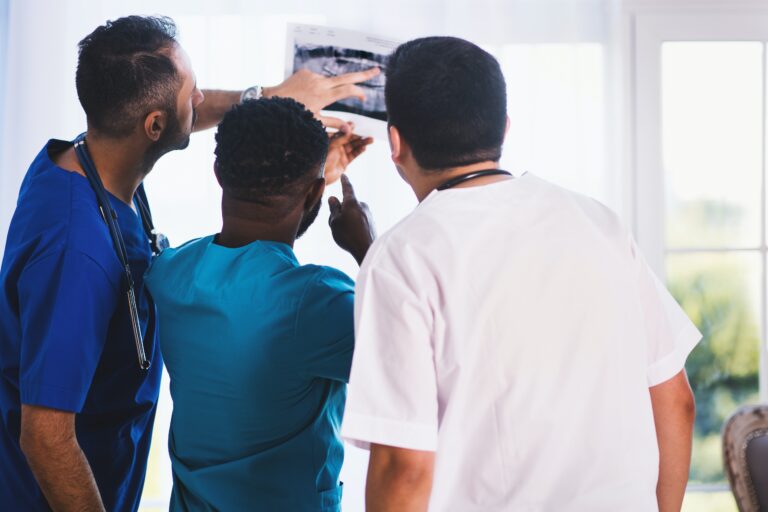LOS ANGELES (AP) — Remember the first rap song you heard? Some of your favorite rappers and DJs do. While hip-hop celebrates 50 years of life, The Associated Press asked some of the genre’s most popular artists — including Killer Mike, JT of City Girls, King Combs and Fat Joe — to recall their first memory of hearing a rap song and how it resonated with them.
In the second installment of a two part series, the AP highlights the stars who connected with rap music through a song other than “Rapper’s Delight,” the 1979 hit that was the entry point for Chuck D, DJ Jazzy Jeff and many other artists. For some, the rap song that hooked them was the work of Run D.M.C., Tupac Shakur, the performance of a close family member and even (pre-Oscars) Will Smith. (Watch videos of the artists describing their early hip-hop influences here.)
Here are the stories of 14 hip-hop legends and young stars talking about how they initially got hooked on rap.
FAT JOE
Fat Joe remembers the first time Grandmaster Flash and the Furious Five’s song “ The Message ” went viral. He’ll never forget the moment when the rap song was being played throughout the housing projects in the Bronx borough of New York City.
“I remember coming down the projects one day in every apartment. Everywhere was playing it. I was like ‘Yo, this is crazy,’” the rapper recalled before he recited some of the song’s lyrics. “It’s like a jungle sometimes. It makes me wonder how we’ll keep from going under.”
Fat Joe, who is of Puerto Rican and Cuban descent, said hip-hop became a way of life for many in his neighborhood.
“I used to look out my window, 7 years old, looking at the parties in the block and the jams, staring out my window, seeing the older guys playing hip-hop on a boombox in front of the building,” he said.
Fat Joe said his first introduction to hip-hop came through his brother, who used to be a crate boy for Grandmaster Flash.
“Back in the day, there were no computers, there were no Serato. It was vinyl,” he said. “The biggest honor you can have in life is being a crate boy carrying milk crates full of vinyl. He was a crate boy for Grandmaster Flash. Any party Grandmaster Flash gave, my brother was a crate boy. They wouldn’t pay him in money. They would pay him with flyers to the next party and he would give them out for free. But he was down.
“When you talk about Afrika Bambaataa, Kool Herc, Grandmaster Flash, these are the three founding fathers of the whole culture. I’m there. You know, it’s right here.”
KILLER MIKE
Growing up, Killer Mike witnessed the drug epidemic run rampant in his neighborhood in Atlanta. But it was Ice T’s lyrics on “ 6 ‘N the Mornin ’ that helped him conceptualize his plight.
“Crack had come into our community and had started to turn our community upside down,” he said. “When Ice dropped ‘6 ’N the Mornin’, it was the first confirmation for me as a little kid that I wasn’t going crazy. … The crack epidemic had broke them down. They became victims of their addiction.
“‘6 ’N the Mornin’ acknowledged it in a beautifully poetic adult and street way. It confirmed all of my youthful suspicions that the world had changed and was never going to be the same again.”
2 CHAINZ
It’s hard for 2 Chainz to pin down the first rap song he ever heard. He could only remember the artists who made an influential mark on him.
While hip-hop saw West Coast usurp its Eastern counterpart as the dominant rap force in the 1990s, 2 Chainz found rap music for the first time — thanks to his older cousins — through the lenses of Luther Campbell aka Uncle Luke and his group 2 Live Crew.
With Campbell in the lead, the group was best known for their raunchy rap albums including “As Nasty as They Wanna Be” that were among the first to boast parental advisory stickers, as well as R- and X-rated videos.
2 Live Crews’ song “ Me So Horny ” was particularly controversial. But for 2 Chainz, his introduction to their music served as an enlightening moment for him.
“It obviously was a lot of profanity, but I enjoyed that music,” 2 Chainz said. “Shortly after that, I was introduced to Too $hort and NWA. My life has been changed ever since.”
FRENCH MONTANA
Before French Montana moved to the United States, hip-hop touched his soul while living in Morocco. At age 9, his ear was caught by two songs including Tupac Shakur’s “ Ambitionz Az a Ridah ” and “ Gangsta’s Paradise ” by the late Coolio.
“I didn’t even understand what they were saying,” Montana said. “That’s why I probably get more overseas love then here, because I know what it feels like to be a kid over there listening to things and not understanding. So I had a chance to be on both sides of the world.”
Montana said he was compelled by the way of life described in those two songs.
“It was more of a lifestyle,” he said. “It was more of something new. It was all in your face. It’s a feeling. Certain records you hear sometimes from a new artist, you don’t even know who they are. You might hear it on the radio, you turn around and be like ‘Yo, who is that? What is that?’… There’s no type of information. Just sonically being hooked to something like it’s a drug. It grabs you. It grabs your ear. Your body just twists. I felt like that was the moment when I heard Tupac on ‘Ambitionz Az a Ridah’ and Coolio.”
SOULJA BOY
When Soulja Boy’s mother played music around the house, she would often listen to a variety of Tupac records.
But it was Shakur’s song “ Dear Mama ” that stuck with him the most.
“It was one of them ones,” Soulja Boy said. “My mom used to play Tupac a lot when I was a little kid. I heard it growing up. Once I got older, I could understand it more. It’s one of them ones that made me fall in love with hip-hop for sure.”
FLO MILLI
Flo Milli’s playlist is nearly endless. But the one song that jumpstarted her hip-hop infatuation was Tupac’s “ Hit ‘Em Up.”
“It was just like his energy,” said Flo Milli, the Alabama-born rapper whose rose to fame through her songs “Beef FloMix” and “In the Party” on TikTok. “Just the way he carried himself and how lyrical he was and making his staple in the game. I felt like that was really cool. I love that song.”
JT
As a Miami native, rapper JT remembered listening to a popular song that represented her home city the most.
She’ll never forget hearing Will Smith’s 1998 song “ Miami,” a record from his debut solo album “Big Willie Style.”
“Y’all would say I’m playing, but it was Will Smith. I was a big Will Smith fan growing up with my cassettes,” said JT of the rap duo City Girls. “It’ll be like ’Welcome to Miami….”
DOECHII
Doechii is a rising rap star drawing inspiration from several well-known artists such as Nicki Minaj, Lauryn Hill, Kanye West and Beyoncé.
But for the Tampa, Florida-based rapper, hip-hop touched Doechii’s heart after she heard “ Pull Over ” by Miami artist Trina.
“That’s top tier hoochie,” said Doechii, whose song “What it Is (Block Boy)” featuring Kodak Black reached No. 1 on Billboard’s rhythmic airplay chart.
KING COMBS
Throughout King Combs’ life, he’s heard a countless amount of songs from his father, Sean “Diddy” Combs.
But it was Diddy’s “ Can’t Nobody Hold Me Down ” with rapper Mase that made a tremendous impact on his son, who said the hip-hop collective A$AP Mob were a major influence, too.
“My pops got a song called ‘Can’t Nobody Hold Me Down” that’s hard. That resonated with me for sure,” said King Combs, whose song “ Can’t Stop Won’t Stop ” with Kodak Black topped Billboard’s Mainstream R&B Hip-Hop last year. He drew inspiration from “ Crush on You ” by Lil Kim and Lil Cease.
“But then when I saw A$AP Rocky and his whole crew and all his friends having fun doing it, that also inspired me, too,” he said. “You can tell it was something they loved. When I make music, I just really want to have fun.”
DIPLO
Diplo is one of the most popular EDM producers and DJs today, but he’s made his own mark within hip-hop through collaborations with rap stars like Drake, Lil Wayne, Busta Rhymes, Mac Miller, Snoop Dogg and Wale.
Hip-hop has always been with Diplo ever since his days as a youth in Miami. That’s when he heard “Planet Rock.”
“It was a huge record growing up in Florida,” said Diplo, who is of German and English descent. “I’m a huge Miami bass fan and loved 2 Live Crew. Probably the first thing I’ve ever bought was a cassette single of Digable Planets ‘Rebirth of Slick (Cool Like Dat).’ I loved that record. The Pharcyde’s first album. That’s when I started to get into it – when I was like 11 or 12 years old. As a music aficionado, I think hip-hop production has always been an inspiration to me.”
6LACK
Like father, like son. Hip-hop first ventured into 6lack’s life through his dad, who had his own rap career under the stage name, Ricardo FLO.
In the mid-90s, 6lack remembers watching his father lay down tracks before his dad eventually asked him to hit the booth to record some songs at a very young age.
“I grew up watching him in the studio when I was in Baltimore,” he recalled of his moment with his dad whose stage name meant For Lord Only. “The very first thing that I ever recorded in my life I did at 4 years old. It was like watching him do his thing.”
6lack added: “Then there was a moment where he was like ‘I got a little opening here. Say this. Say that.’ It’s crazy because I don’t remember that many things from like being 4, 5 or 6 years old. But I remember being like ‘When I grow up, I’m going to be somebody, believe in God and believe in me.’ But I did that on wax on his song. That was probably the first time I internalized that I’m on a song. I’m on a rap song.”
BIA
For Bia, rap was introduced to her with some R&B flavor through Aaliyah’s 2000 song “ Try Again,” produced by Timbaland. The song might’ve had Aaliyah singing on the track, but it was influenced by hip-hop and dance.
“I remember during childhood that the song really stuck out to me,” said the rapper about the Grammy-nominated song from the “Romeo Must Die” soundtrack. “I knew every dance move. I emulated that song. … I was like ‘This is me.’”
SHAQ
Shaquille O’Neal is one of the most dominant forces in NBA history, winning four championships during his backboard-shattering 19-year career. But he also had a short but successful rap career releasing two albums including his 1993 debut “Shaq Diesel,” which sold more than a million copies, and he’s dabbled into deejaying as DJ Diesel.
The NBA Hall of Famer said his first rap song experience came while he watched the 1984 film “Beat Street” before his parents bought him the movie’s soundtrack on vinyl. The film followed two brothers and their friends who inserted themselves into the hip-hop culture through breakdancing, DJing and graffiti.
“It was awesome,” O’Neal said. “Then I got the two turntables, and I got the record for Christmas. But I got in trouble for scratching it. I was trying to be like the DJs.”
DJ DRAMA
While growing up in Philadelphia, DJ Drama fell in love with hip-hop through Rock Master Scott & the Dynamic Three’s “ The Roof is on Fire,” released in 1984.
“You know, I have early, early memories of the older kids in my neighborhood getting us to sing as young kids ‘The roof, the roof, the roof is on fire. We don’t need water. Let it burn. Let it burn,’” he said.
DJ Drama also remembers hearing Run-D.M.C.’s “ My Adidas ” often along with “Summertime” by DJ Jazzy Jeff & The Fresh Prince aka Will Smith.


